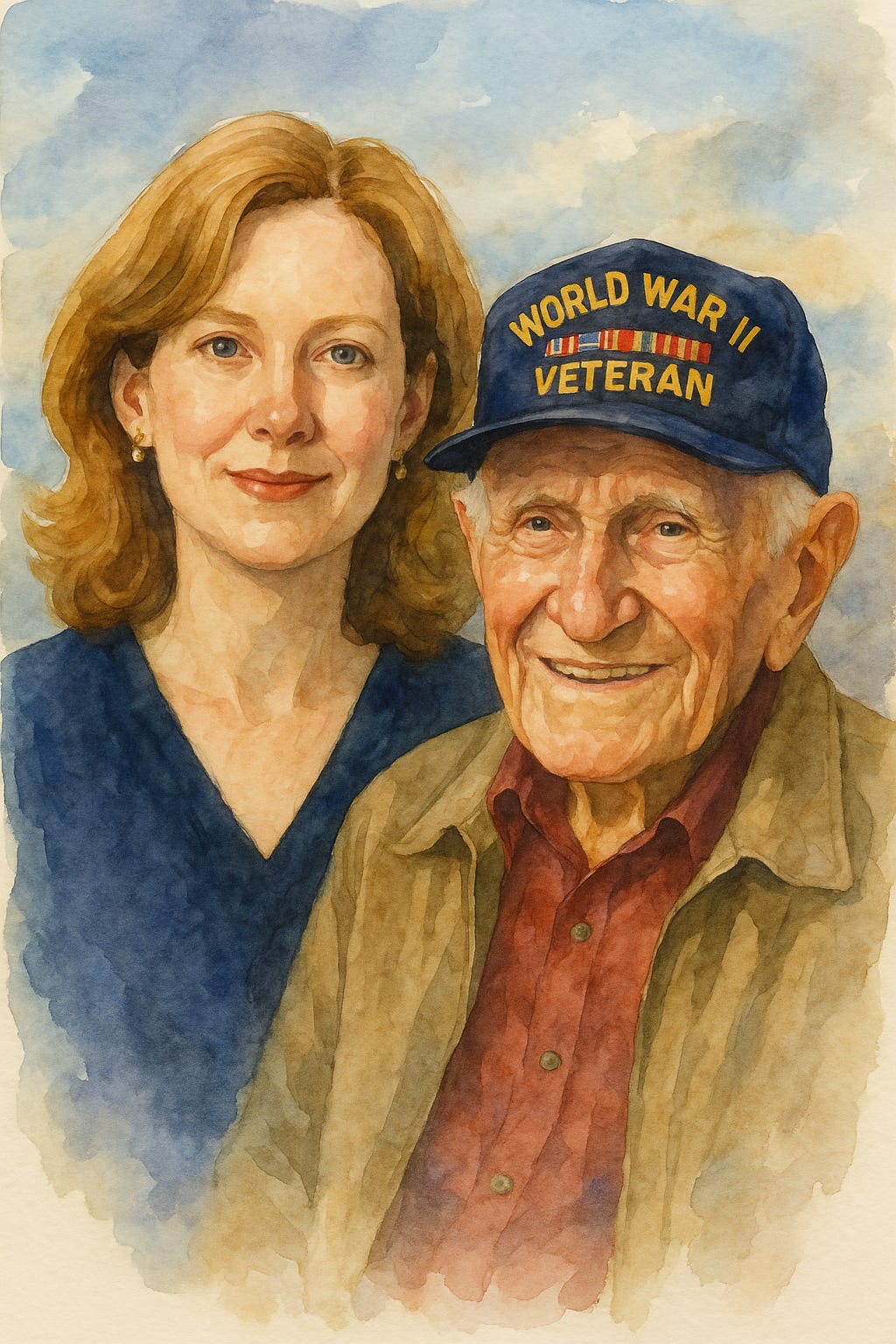Mind Candy is a newsletter on practical philosophy and human flourishment—aka how to live “the good life.” Each month we tackle a new theme.
This month we’re exploring the theme of Potential.
Welcome to another edition of Sweet Bites, Mind Candy’s bite-sized newsletter with thought-provoking finds to send you into the weekend with.
🍰 Mini Bite
She could barely move and had to pull herself to her desk, the disease bearing down on her every minute of the day. But the story called, she had to keep going, she had to complete the book.
Laura Hillenbrand, the famed writer of the book Seabiscuit, was hard at work on her second about Olympic runner and World War II prisoner of war Louis Zamperini.
“There was actually a span of time of two years while I was working on the book when I was unable to leave the house a single time because I simply wasn't strong enough to walk to the car…”
“My principle problem these days is vertigo-balance disorder,” she would say in an interview. “That makes reading and writing extremely difficult.”
This meant Hillenbrand had to find ways to work around the disease. She had to write around “the room spinning,” and work in “small increments” to be able to focus before the dizziness kicked in.
Hillenbrand suffers from myalgic encephalomyelitis, also known as chronic fatigue syndrome, and was diagnosed while in college.
In her New Yorker article on the disease, A Sudden Illness, Hillenbrand describes what it was like to be diagnosed and live with myalgic encephalomyelitis.
“Sometimes I’d look at words or pictures but see only meaningless shapes. I’d stare at clocks and not understand what the positions of the hands meant. Words from different parts of a page appeared to be grouped together in bizarresentences: “Endangered Condors Charged in Shotgun Killing.” In conversation, I’d think of one word but say something completely unrelated… When I tried to cross the street, the motion of the cars became so disorienting that I couldn’t move.”
But like Zamperini, she refused to give up. This forced her into finding new ways to research and write, including conducting all interviews with Zamperini—hundreds of hours—over the phone.
“It actually in a way, it was an advantage because I wasn't looking at a 90-year-old man telling me the story about the 18-year-old Runner, I was looking at the 18-year-old runner in my imagination. Whatever he was telling me about I was able to really put myself there in my imagination because he wasn't sitting right in front of me? and I think it enabled me to visualize the the story better and to ask better questions because when I, when I really felt like I was on the journey with him, I could think about the details that he'd be experiencing, and I could ask him about them, and I don't know that I would have done that if we'd been sitting in the same room.”
Finding our potential is never as easy as we think and it doesn’t always follow a straight line. Often we must summon the courage just to show up and keep pushing ahead, unrelenting in our pursuits.
This means accepting that we will encounter obstacles, setbacks, and losses that will force us to readjust and react. But in so doing, we hold the opportunity to find new wisdom. It is in these moments of uncertainty, of pain, of disappointment that we are forced to find new ways forward.
“Accelerating learning requires a second form of courage: being brave enough to use your knowledge as you acquire it,” writes the psychologist
.And this is exactly what Hillenbrand had to do. Each day she had to not only overcome her debilitating disease but readjust how she could work.
Even though she was unable to leave the house, she kept pushing herself, drawing inspiration from her subject.
“I did keep working. I worked every day one way or another to get it done.”
Since its release, Unbroken has sold millions of copies and is better because of Hillenbrand’s resilience to overcome the debilitating situation her disease inflicts upon her.
“I think it was actually the better for my having gone through what I'd gone through. I have been in very very dark places in my life, um, largely because of this disease, and it has given me an understanding of suffering that I think you can only get firsthand.”
Hillenbrand met Zamperini only once, after she’d been able to complete the work. As they departed, he turned to her and said, “Laura, I know why I've lived this long and it's to see you write this book and I feel that my life has come to its Crescendo with this.”
The cherry on top? After having read the New Yorker article detailing her battle with the disease, Hillenbrand received a package from Zamperini. It was his Purple Heart he’d been presented with from World War II with the following message:
“I think you deserve this more than I do.”
🧘🏻This Week’s Monday Meditation
The Path to Our True Potential
Mind Candy is a newsletter on practical philosophy and human flourishment—aka how to live “the good life.” Each month we tackle a new theme.
🦉 This Week’s Wednesday Wisdom
Devotion, Experience, & Destiny
Mind Candy is a newsletter on practical philosophy and human flourishment—aka how to live “the good life.” Each month we tackle a new theme.
📚 Wisdom
“When we are incongruent—whether because we are copying others, falling victim to cascades, or silencing ourselves and others—we do lasting damage to our own self-worth, diminish our well-being, and make it more difficult to realize our full potential.”
Todd Rose
Source: Collective Illusions
🎙 Podcast to Listen To or Watch
In the below video, Andrew Huberman and Adam Grant discuss Grant’s book, Hidden Potential, and dive into the science behind it.
Think someone you know would enjoy these? Hit below to forward and spread the love.
Until next time,
D.A. DiGerolamo
We are a participant in the Amazon Services LLC Associates Program, an affiliate advertising program designed to provide a means for sites to earn advertising fees by advertising and linking to Amazon.com.














